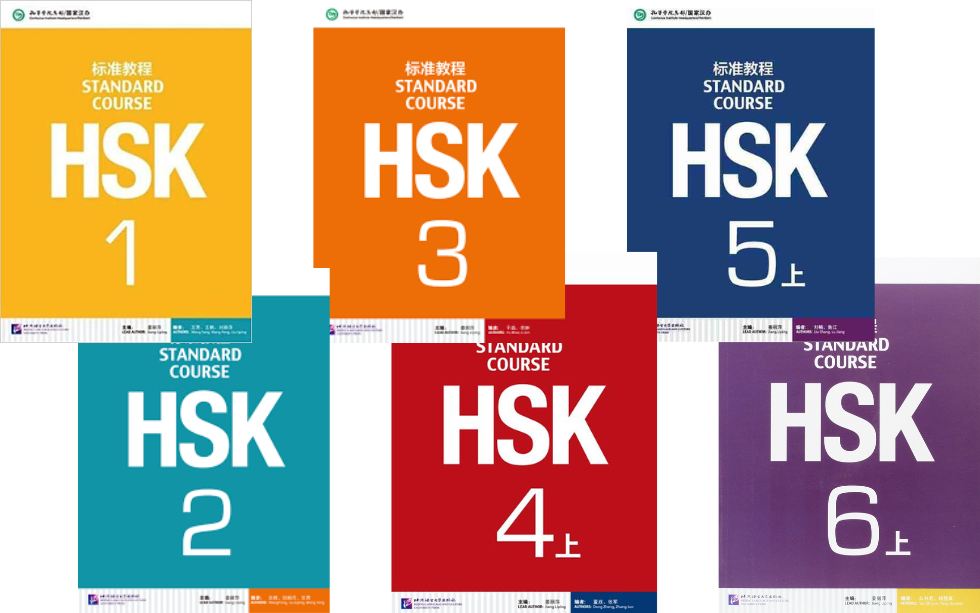A question I commonly get asked by students is which book I would recommend to improve their Chinese? This is something I get asked all the time, so I want to explain why I recommend the HSK course curriculum. I hope this will both help answer and inform current and future students alike.
First, for those who are unfamiliar with HSK, HSK is a Global Recognition Chinese proficiency test. The syllabus varies in difficulty, ranging from level 1 (Beginner) to level 9 (Advanced). It focuses on three core competencies of the Chinese language: listening (Mandarin), reading, and writing. More information on HSK can be found by visiting their official website here or just have a chat with me.

Here are some of the key benefits to using the HSK Syllabus:
Systematic structure
The learning materials in the HSK books are organized from levels 1 to 9 based on difficulty level. This structure is designed in a systematic way to assist students to not only learn new Chinese characters but to also work on their grammar, sentence structure, and pronunciation. New words are introduced in a way that builds on characters already learned, encouraging students to see connections, which reinforces learning. There are also multiple checkpoints along the way, enabling students to check their progress throughout the course.
Comprehensive learning
The HSK syllabus approaches language learning in a comprehensive manner. I find the syllabus encourages students to learn the Chinese language as a whole rather than simply memorizing words. Besides focusing on key language skills such as listening, reading, and writing, it also provides lessons covering a cross-section of real-life interactions in academic, professional, and daily life settings. The wide range of vocabulary introduced means that you can start to have authentic conversations relatively quickly in Chinese, about your everyday life and interests.
Relevant content
The content of the HSK books is well prepared, relevant and up-to-date for efficient learning. It builds upon frequently used words and phrases in Chinese at each HSK level. This is then reinforced through the repetition of vocabulary and sentences in various scenarios and contexts. Repetition is the most important thing in language learning. In order to learn a new word, it is usually not enough to see a word once.
Does the HSK Syllabus suit everyone?
Another common question students ask is whether or not they can use the HSK materials, even if they don’t intend on taking the HSK exam.
The short answer to that is YES. Many students take HSK exams because it is either a prerequisite to gaining entrance to Chinese universities or obtaining employment in China. However, the knowledge you gain from this holistic and well-structured learning medium remains the same. The materials in HSK will equip students with practical applications in real-life settings, no matter what their goals are in learning Chinese.
How to use the HSK Syllabus?
For students looking to build a strong foundation in Chinese, I highly recommend the HSK course materials for levels 1 to 4. This will help build a strong foundation in the Chinese language encompassing vocabulary, grammar, sentence structure and pronunciation. Once students reach the end of HSK 4. I suggest students should direct their learning based on their specific personal interests and/or professional needs.





0 Comments